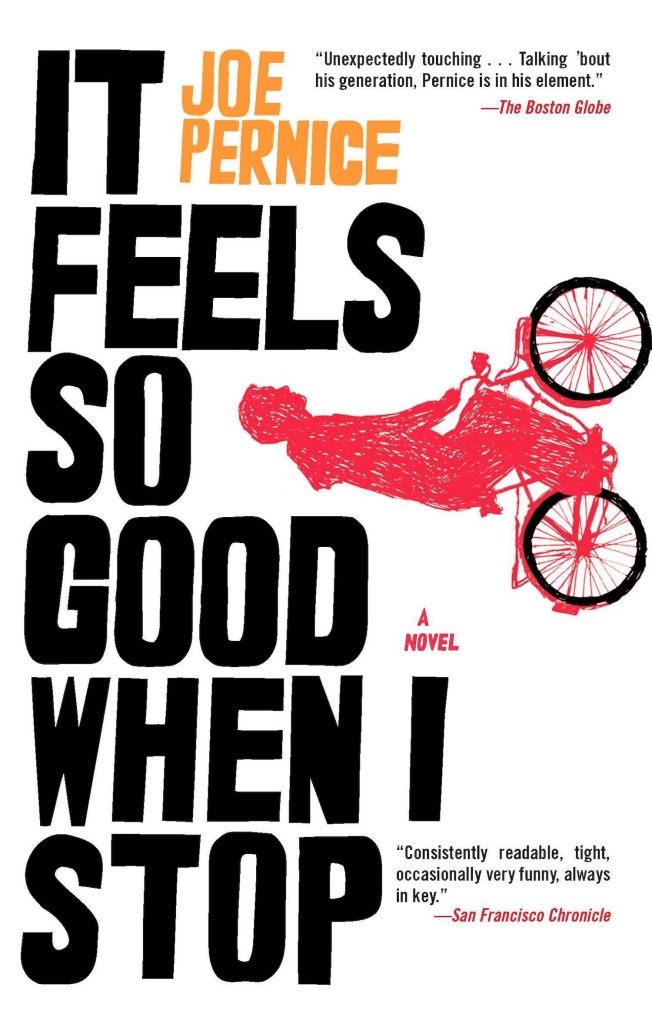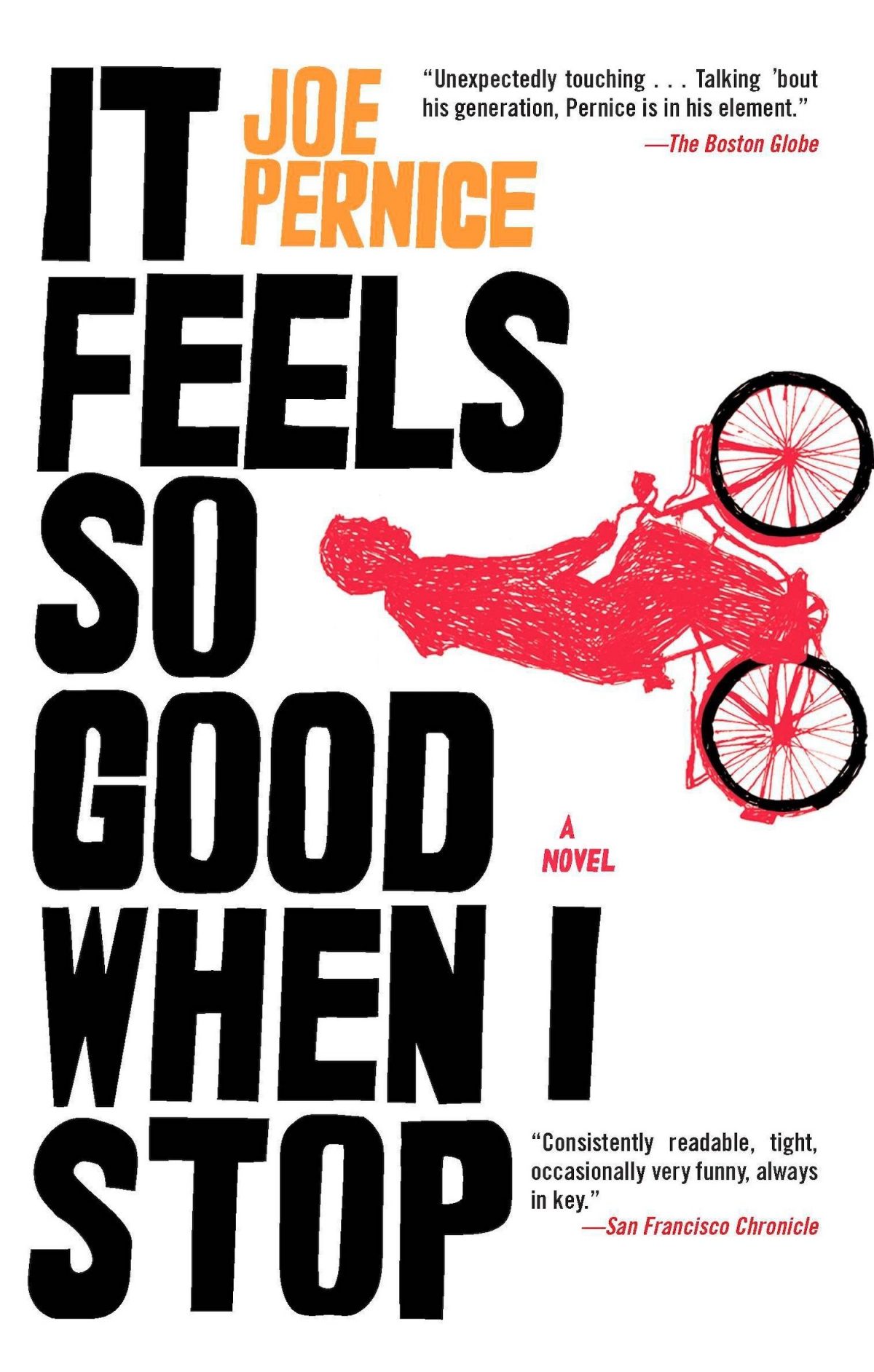
It is perfectly fitting, and almost expected, that Joe Pernice would bring a long work of fiction into the world. The songs he has written for his pop band The Pernice Brothers are filled with vivid storylines and pointillist details. And Pernice has already proven his mettle as a fine fiction writer with his installment in the 33 1/3 book series, which used The Smiths’ Meat Is Murder as a jumping off point for a beautifully crafted coming of age tale. But whereas his first literary effort was wrapped up in the swirling emotions and hormones of high school, his novel moves to the next stage of development: the slow slide toward adulthood. In many respects, Pernice trods a well-worn path covered by countless novels and films that have focused on emotionally stunted, artistically inclined young men as they fumble through a series of events that leaves them changed people at the end. What saves It Feels So Good When I Stop is how he veers off this path with regularity, giving us a variety of wholly original scenarios that lead to a conclusion that, in keeping with his protagonist’s shiftless attitude toward the world, leaves many loose ends untied. The protagonist is a nameless 25-year-old male who has retreated to a small town in Cape Cod with little ambition other than to avoid both his uncertain future and Jocelyn, the woman he married a few weeks’ prior to the book’s opening scenes. Their tempestuous relationship is threaded through the story, letting the reader bounce back to the key moments and quick-witted banter and forward again to his shuffling attempts to get by while hiding out in a gutted home owned by his brother-in-law. As you would expect, the story follows Pernice’s character as the layers of self-interest and ego are slowly peeled away, thanks to his begrudging involvement in the life of his young nephew (a toddler that he ends up watching on behalf of his brother-in-law) and by a strange, yet emotionally affecting relationship with Marie, a middle-aged wannabe filmmaker who hires him to help her finish a work that will help her come to terms with the death of her own young son. It is compelling enough to read as this unnamed gent slowly matures, but I found the sections devoted to his past to be much more engaging. The credit for this is wholly Pernice’s as he captured the hyperaware, self-indulgent voice of this character perfectly. He’s the type of character who has to let you know what record was on the turntable on a particular day because that is all that really matters to him. He’d much prefer to pick apart the careers of Todd Rundgren or Nick Drake instead of parsing out his feelings. The only parts that didn’t ring true were the fulcrum of the story: his relationship with Jocelyn. There was little in the book to really make sense of what she found attractive in him, apart from maybe his ability to give as good as he got in their hyper realistic conversations. Those bits of banter felt strange in a book otherwise filled with honest and real dialogue. The witty back and forths between Jocelyn and the narrator glare from the page as if dropped in from a screenplay Pernice was working on in another window. But with so much else to shout about in the book, it’s easy to gloss over those moments and get caught back up in the rest of the sharp narrative that Pernice has constructed. It’s the novel as CD—you just need to skip over the plodding songs to get to the tracks you can sing along with. [Riverhead]
—Robert Ham







